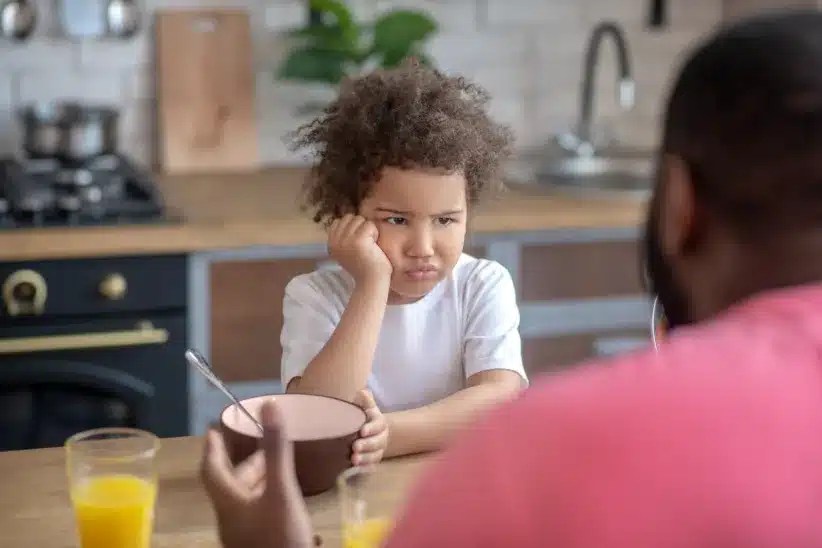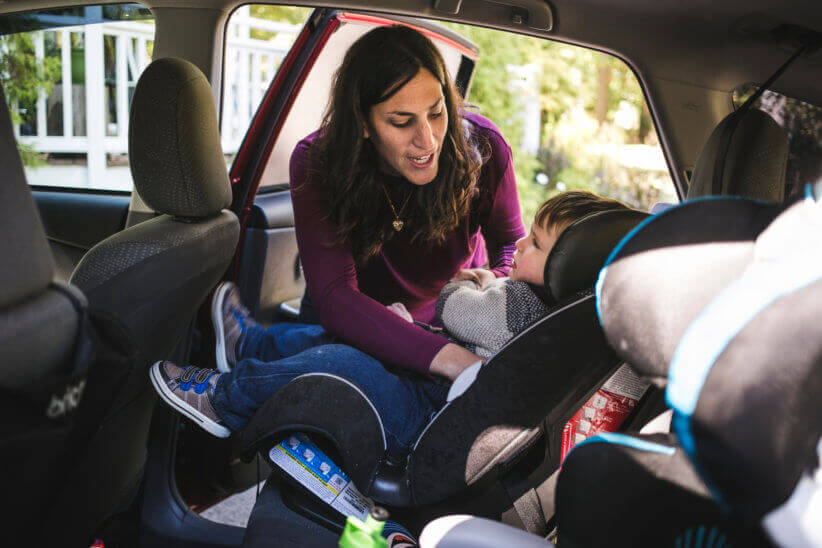 As politicians nationally emphasize the importance of Pre-K in preparing children for school success, there is a growing movement to focus on the first three years of life, and specifically on bridging what leaders call the “word gap.” This gap refers to the disparity in the number of words learned by children of different economic backgrounds by the time they enter kindergarten and across their lifetimes. It is a critical issue. Research shows that children who start kindergarten with fewer words are never able to catch up to their counterparts with larger vocabularies. Not surprisingly, parents and teachers can have a huge impact on children’s success by simply creating an evolving and engaging dialogue with the children during their first few years of life.
As politicians nationally emphasize the importance of Pre-K in preparing children for school success, there is a growing movement to focus on the first three years of life, and specifically on bridging what leaders call the “word gap.” This gap refers to the disparity in the number of words learned by children of different economic backgrounds by the time they enter kindergarten and across their lifetimes. It is a critical issue. Research shows that children who start kindergarten with fewer words are never able to catch up to their counterparts with larger vocabularies. Not surprisingly, parents and teachers can have a huge impact on children’s success by simply creating an evolving and engaging dialogue with the children during their first few years of life.
In March, The New York Times focused on the word gap when it published “Providence Talks,” an article on an initiative spearheaded by Providence Mayor Angel Taveras. The program aims to grow children’s vocabularies from birth to four, particularly in families living in poverty. The process coaches parents so they actually use more words each day, measures word interactions by recording families at home, and ultimately gives children more word power for learning.
The Providence program’s aim is undeniably admirable. But as Claire Lerner, director of parenting resources at Zero To Three, the largest American advocacy organization for infants and toddlers, points out: the number of words children acquire will not by themselves create a “smart and successful” adult. She stresses: “We don’t want parents talking at babies…We want parents talking with babies.”
Lerner’s distinction between talking at and talking with babies reminds us that the dialogue itself, the interactive exchange between adult and child, is really what’s important. Children have a point of view from birth before there is any expressive language. Their gaze indicates engagement and wonder and opens up the door for back-and-forth communication. Parents can foster this communication in simple but important ways. For example, when your child notices a dog on the street, acknowledge this with words. “That’s a big dog. Do you see his black spots? Look at his feet. His nails are really long.” When we recognize a child’s fascination, we can model our own in return and become partners in observation, using language to present new words and ideas. The child’s interest lays the groundwork so next time they see a dog they’ll be able to retrieve those ideas. Some word interactions carry more weight than others.
Providence Talks is just one of several initiatives underway across the United States aimed at growing vocabularies of very young children. To learn more you can visit: Providence Talks at providencetalks.org; Too Small to Fail at toosmall.org/mission; The Thirty Million Words Initiative at tmw.org.
This article was previously seen on Kidzcentral Station.
Renee Bock is a dedicated early childhood educator, who is currently the Educational Director at Explore+Discover, a social learning center in Manhattan that is dedicated to setting the standard for infant and toddler care and education [to learn more, read our recent profile on the program HERE]. Renee has more than a decade of experience in the field and holds a Master’s in Early Childhood Education from Bank Street College. In her present position, she is helping Explore+Discover open the first of over 20 New York City centers focused on children from 3 months to 2 years old. She can be reached at [email protected].





















